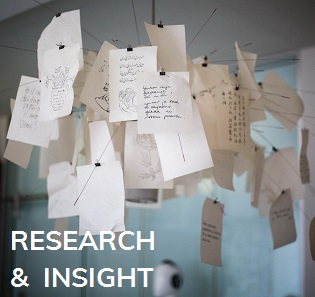The University’s work in cultural heritage brings together science, engineering, arts and humanities to develop innovative ways to reveal, record, understand and help restore culturally significant objects and protected monuments.
Pioneering solutions include the novel digitisation of sites and artefacts, and the application of advanced imaging and remote sensing techniques that significantly improve analysis of artworks and historical sites along with humanities approaches to preserving intangible culture. These innovations have transformed heritage practice, policy and innovation globally.
Queen’s Anniversary Prize winners were announced last night (November 25) by the Royal Anniversary Trust at a reception hosted at St James’s Palace by kind permission of Her Majesty the Queen.
It is the second time that NTU has been bestowed the honour of receiving a Queen’s Anniversary Prize for its research, the first being in 2015 for leading-edge research on the safety and security of global citizens.
The scheme – which recognises outstanding work demonstrating excellence and innovation delivering real benefit to the wider world – is the highest form of national recognition open to a UK academic or vocational institution.
These honours are granted by The Queen every two years, and entries are subjected to rigorous specialist and technical assessment through a process managed by the Royal Anniversary Trust, a charity independent of government. Recommendations for Her Majesty The Queen’s approval are made on the Prime Minister’s advice.
NTU’s research mitigates the threats that heritage artefacts and sites face, effectively future-proofing local, national and international attractions. Globally, digital preservation is seen as a key response across the sector. The University’s work is reshaping preservation programmes, enabling the large-scale scientific survey and analysis of assets at heritage sites as diverse as the Mogao Caves temple complex, a UNESCO world heritage site on the ancient Silk Road, and the Hawara Pyramid in Egypt.
Using online platforms, digital exhibitions and virtual reality modelling, the research has also spanned collaboration with governments and communities in relation to remote and endangered heritage sites, places and marginalised groups, including Mosul in Iraq and Gujarat in India.
The cutting-edge imaging techniques allow for non-invasive analysis of sub-surface detail in artwork. These techniques benefit researchers, conservators and curators. NTU’s work has been taken up by partners such as the Louvre, the National Gallery, the British Library, the British Museum, Dunhuang Research Academy and the Brooklyn Museum.
Nottingham Trent University Vice-Chancellor and President, Professor Edward Peck, said: “This award recognises the impact our innovative research has across the globe. It redefines the science that preserves and restores our shared cultural heritage around the world and for generations to come.”
Sir Damon Buffini, Chairman of the Royal Anniversary Trust stated: “The colleges and universities honoured on this list are testament to the rich and impactful work being done at our educational institutions day in, day out – particularly in the face of challenges that have forced them to adapt so rapidly.
“This round saw the highest number of entries in a decade. It is rewarding to witness the scheme’s continued growth in profile in recent years, and the relevance and positive effect each winner’s work is having both within its field and beyond. Huge congratulations to the latest Prize-winners!”
Posted on 26 November 2021







